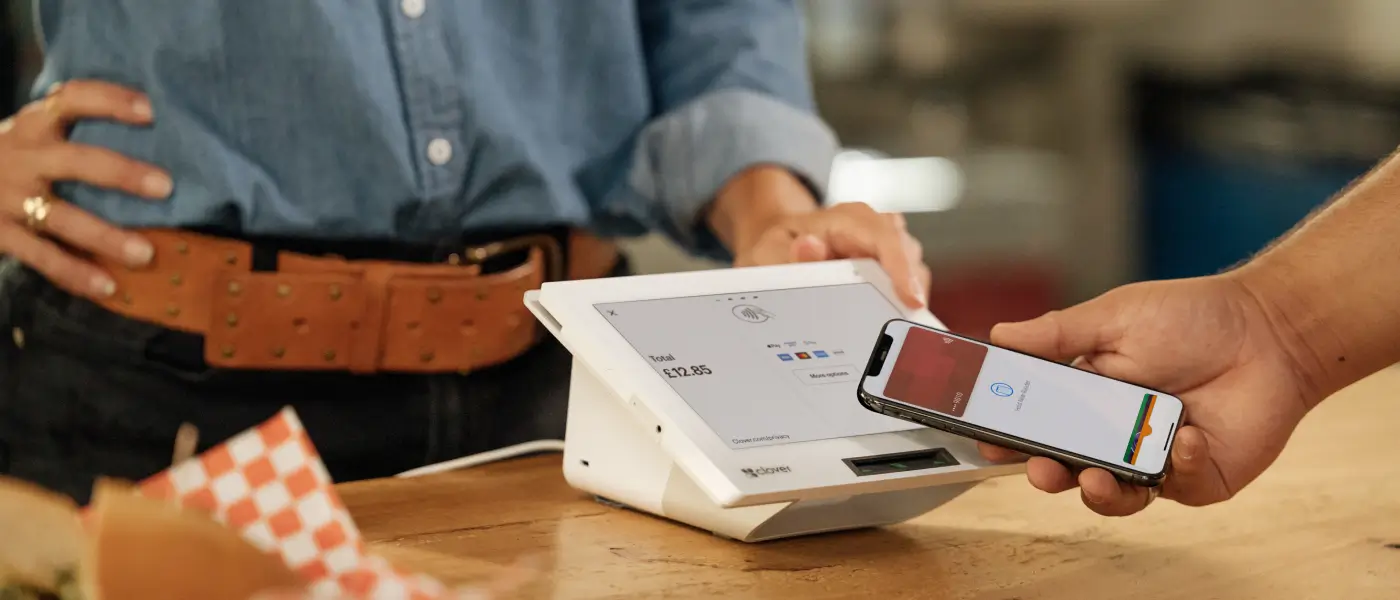Table of Contents:
Understanding PCI compliance: First steps to secure payments
PCI DSS compliance is critical for all businesses handling card transactions and represents a set of essential standards for security, finance and online payments. It helps protect sensitive customer data while ensuring the security that online payments demand.
However, while a compliant payment provider handles much of the burden and simplifies the process for merchants, businesses must complete a Self-Assessment Questionnaire (SAQ) to demonstrate compliance.
With PCI-validated P2PE terminals in its offer, such as Clover Flex, Clover Mini and Clover Station Duo, Clover acts as a partner for PCI compliance. These devices ensure that Primary Account Numbers (PANs) never touch merchant systems. This reduces the scope for breaches and means that businesses satisfy card data-security requirements without deep technical knowledge.
A guide to proactive online payment fraud prevention
In 2024, the UK endured approximately £1.17 billion in fraud losses across about 3.3 million incidents, with remote purchase fraud rising sharply by 22 percent.1 These trends highlight the stakes for small and medium-sized businesses that face several threats when accepting payments:
- Phishing scams, where criminals impersonate trusted parties to steal login credentials.
- Card-not-present fraud, also known as remote purchase fraud, where stolen card details are used for online transactions.
- Friendly fraud or chargeback abuse, where customers dispute legitimate transactions.
Simple manual checks, such as verifying email origins or spotting repeated failed payments, help but are sometimes insufficient. Modern systems must flag suspicious patterns automatically. Clover's business solutions offer advanced fraud detection.
Algorithms monitor transactions in real time, flagging anomalies like unusual purchase volumes or mismatched billing details. This automated protection acts as a first line of defence while delivering seamless payment processing for UK merchants.
The security toolkit: Encryption, tokenisation and 3D secure explained
Businesses must prioritise technologies that strengthen security, finance and online payments across all digital channels:
Encryption works like sending a message in a locked box, with only intended systems capable of unlocking it.
Tokenisation replaces sensitive card numbers with tokens, similar to using a code name instead of a real name.
3D Secure adds an authentication step at checkout, such as approving a login in a banking app.
Combined, these tools create robust online payment security. Encryption secures data in transit, tokenisation removes sensitive details from merchant systems, and 3D Secure confirms the transaction is genuine.
All these technologies operate seamlessly in Clover POS systems. Shoppers experience fast, frictionless checkout while merchants gain multi-layered protection without added complexity.
Choosing a secure payment processor in the UK
A simple checklist helps businesses evaluate a payment provider:
- Transparent PCI compliance support.
- Advanced built-in fraud detection tools.
- Full support for the latest protocols, including 3D Secure 2.
- Integrated ecosystem, including hardware, software and processing from one trusted provider.
Using separate systems increases security risk because each interface becomes a potential weak point. An all-in-one platform reduces complexity and strengthens control.
Clover meets these strict requirements with all its devices PCI-validated. Clover solutions include automated fraud protection and support 3D Secure technologies. Integration with inventory management, employee schedules, accounting and e-commerce platforms means businesses use one ecosystem. That translates to smoother operations, fewer integration gaps and improved security. Online payments demand all that to meet both merchants’ and customers’ expectations.
Clover enables UK businesses to adopt online payment security methods that combine PCI compliance, fraud prevention, encryption, tokenisation and 3D Secure. Contact us today for payment solutions that reduce merchant burden while safeguarding transactions and customers.
Bibliography
1. Britain sees 12% spike in fraud cases as banks battle $1.6 billion epidemic




